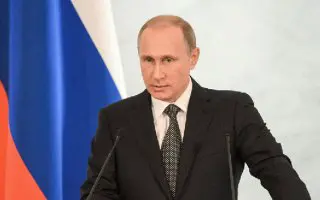Saudi Arabia claims to have recouped more than $100bn (£70bn) through its anti-corruption purge and jailed up to 56 high-profile royal family members and businessmen who refused to surrender their wealth in return for freedom.
On Tuesday morning, the attorney general, Sheikh Saud al-Mojeb , announced the end of a three-month investigation that ensnared some of the kingdom’s best-known figures, who were alleged to have siphoned off billions from state revenues.
He said 400bn riyals had been forfeited by as many as 325 people detained in the Ritz Carlton hotel in Riyadh, where their personal finances were examined by forensic accountants.
The figure, which is impossible to verify, included the value of real estate, business, cash, shares and other assets that many of those detained had signed over during negotiations with the state.
It is more than double estimates made by senior Saudi officials in the early days of the operation, which was ordered by King Salman and launched by his son and heir, Mohammed bin Salman, the crown prince.
The saga has shaken the establishment of the conservative kingdom, removing protections from powerful figures who had long benefited from systemic corruption that riddled business dealings and all levels of governance for decades.
Alwaleed bin Talal, one of the world’s richest men, was released from detention at the weekend after coming to an agreement with state officials.
In an interview with Reuters before his release from a hotel suite purported to have been his home for the past three months, the prominent investor in Newscorp, Apple and Twitter described the situation as a “misunderstanding” and denied allegations of corruption.
His detention, and that of others including the former head of the Saudi royal court, Khaled al-Tuwaijri, has sorely tested alliances between the ruling Saud family and other powerful clans, who have collectively stewarded the modern kingdom for decades.
Dozens of those detained were from some of Saudi Arabia’s most prominent families, who had been considered untouchable during decades flushed with oil revenue, and have been left aggrieved by the arrests.
But as the kingdom’s wealth shrank under the strain of structurally lower oil prices and a costly war in Yemen, the country’s powerful heir sought ways to regenerate the moribund economy and shake up a society that had become accustomed to unchecked privilege, with next to no scrutiny.
A member of a leading family, whose relative was released from the Ritz Carlton earlier this month, said: “[The crown prince has] been prepared to take on the role of change agent.
“He has learned from [Jared] Kushner and [Donald] Trump that if you overwhelm people with change, you will stun them, and therefore be able to get things done.”
Two other prominent Saudi figures who spoke to the Guardian said most senior officials would in future need to do business on a more transparent footing. However, a much smaller number of senior figures would be allowed to continue to shield their affairs from public accountability.
Two years before the purge, Mohammed, then 29, bought a $500m yacht and a new-build chateau outside Paris for $300m – the world’s most expensive home.
In November, he was claimed to be the buyer of a $450.3m Leonardo da Vinci painting. Abu Dhabi’s culture department later said it had made the purchase but the claim was met with scepticism in the kingdom, where a prince with strong connections to the international art world had brokered the sale.
His critics have claimed his spending remains extravagant at a time in which other senior officials face relative austerity.
Mohammed has at the same time been trying to push through sweeping cultural reforms, removing rigidly conservative social norms that have severely limited women’s role in Saudi society for decades and promoted a hardline version of Sunni Islam, which has been used by extremist groups to underwrite terrorism.
The pace of change has shredded the long maintained view that it must be drip-fed to a reluctant Saudi society.
Since late last year, concerts – albeit for men only – have been held in Riyadh, and women have been allowed into sports stadiums, and will be allowed to drive cars from this summer.
Guardianship laws restricting women’s movements have been weakened and the feared religious police have lost the power to arrest. Laws governing fraternisation between men and women who are not related have also been loosened.
The Ritz Carlton is expected to open to tourists in mid-February. While detained, senior figures were given access to dining rooms, gyms, tailors and medics. The world’s most luxurious jail was run in such a way as to not further upset already offended clans, who would not have tolerated their family members being sent to a prison. Claims that detainees had been tortured or shackled were false.
The fate of the remaining 56 who did not reach terms with investigators remains unclear. The family member of the former detainee said speculation had been rife inside the Ritz Carlton that those who remained would be transferred to a state-run prison, opening a new phase in the ruling family’s relations with the country’s reluctant elite.
(ASIA PACIFIC DAILY)
 简体中文
简体中文

